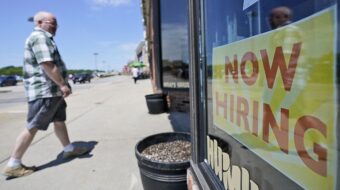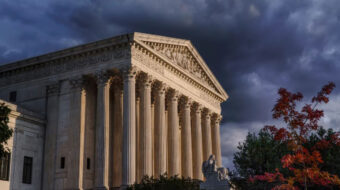Now that U.S. taxpayers have invested a trillion dollars — plus $10 trillion more in credit — many are asking ‘What happens next to prevent a repeat of this fiasco?’
Part of the answer can perhaps be seen in Congress recently where banks and credit unions killed a bill that would empower bankruptcy judges to reduce homeowners’ mortgage debt in proportion to their loss of home value, and thus provide a substantial cushion against foreclosures.
Reflecting the lobbying power of the banking industry, every Republican and 12 Democrats voted against the measure. Illinois Sen. Dick Durbin, a lead sponsor of the bill, could not even get the ”bailed-out’ banking representatives to discuss the matter. ‘They own this place…,” he said on Bill Moyers show.
Also unanswered at the Treasury are ‘stress tests,’ which recommended effective national control of Citigroup and Bank of America and eight other banks, but postponed fundamental restructuring questions.
The most important reform is plain: the financial industry needs to get smaller, and less powerful than it is right now. But bending overall investment more toward public priorities like ‘green’ energy, education, health and transportation objectives requires more organized power than the people currently possess.
The next battle will be over President Obama’s proposal to ‘strongly regulate’ the $10 trillion market in “derivatives’ — complex ‘bets’ on whether commodities, currencies or — even other derivatives — will move up or down in price. This is a direct assault on the heart of huge ‘shadow’ markets that brought countries and people to the brink of hell.
Insuring that financial markets are grounded in real vs fictitious values is the chief goal of regulation. But this too will mean making this sector significantly smaller. Expect a sharp and unremitting struggle from the banking sector until the future after restructuring becomes clearer.
Some may say the banks are too big, too powerful to take on. But worry not. As if this struggle were not difficult and complicated enough, consider the impact of the decline in the dollar, the further collapse of auto, commercial real estate and credit card markets!
The pressures for reform are going to continue to increase, and will not let up, until democratic forces overwhelm the once dominant, still powerful, but decaying power of the ‘too big to fail’ banks.











Comments